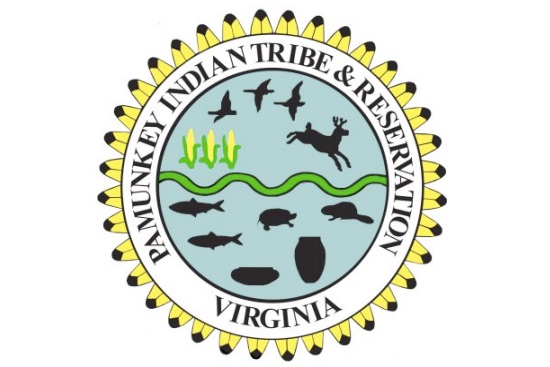African Americans and Indians: A Complex History
As Virginia Indian tribes seek federal recognition, some African-American groups are focusing not on the two races’ shared history of mistreatment but on historical discrimination by Native Americans.

By Janeal Downs and Cameron Vigliano | Capital News Service
Janeal Downs and Cameron Vigliano, VCU students and part of the Capital News Service, did a three-part special report on Native Americans in Virginia. We found it utterly fascinating and suggest you read the other two as companion pieces to this one. Feeling perplexed about what to call America’s indigenous tribes? You’ve got some options, and this will explain why they’re termed multiple things in the articles.
After Christopher Columbus “discovered” America, Europeans drove the Indians from their land and even enslaved them, but it was Africans who would endure the brunt of slavery.
As Virginia Indian tribes seek federal recognition, some African-American groups are focusing not on the two races’ shared history of mistreatment but on historical discrimination by Native Americans.
That is because the Pamunkey tribe and perhaps others prohibited their members from intermarrying with African-Americans.
U.S. Rep. Robert C. “Bobby” Scott, D-Va., says he has supported the efforts of Virginia tribes fighting for years for federal recognition through the U.S. Bureau of Indian Affairs or congressional action.
“However, the BIA should take any accusations of civil rights violations seriously when considering granting federal recognition,” Scott said. “When evidence came to light that the Pamunkey once had discriminatory laws, the bureau should have conducted a more thorough review to accurately assess the impact these now repealed discriminatory laws had on the tribe.”
If the review clearly shows the tribe has reformed its laws and has not recently practiced discrimination, the recognition process should move forward, Scott said. “If that happens to be the case, then the Pamunkey should be recognized accordingly.”
Gregory Smithers, associate professor of history at Virginia Commonwealth University, said the Pamunkey tribe’s marriage rule should be put into historical context. It mirrored Jim Crow laws and Virginia’s Racial Integrity Act of 1924, which prohibited intermarriage between white and black people.
Walter Plecker, the state official in charge of overseeing racial purity, declared that Native Americans no longer existed in Virginia because they were all mixed with African Americans. So the Pamunkey reacted with their own laws.
The Pamunkey, and other tribes such as the Nottoway, had a long history of intermarriage with African Americans. But after Plecker’s decree, they began to make an effort to distinguish between who was full Native American and who was mixed.
“Part of this goes back to a long and complicated history where African Americans and Native Americans haven’t always formed coalitions to fight against racial injustice,” Smithers said.
The history between Native Americans and African Americans has been more complicated on the East Coast than on the West Coast, noted Staysea McCutheon, a member of the Shinnecock tribe in Southampton, N.Y.
“The West Coast was able to maintain their identity longer than the East Coast because the Mayflower didn’t hit the West Coast,” McCutheon said. “So when they brought the slaves, they didn’t bring them around California; they brought them on the East Coast … That’s why we look the way we look.”
On the East Coast, there was much more intermarriage between Native Americans and African Americans. Indians often took in runaway slaves and hid them. This led to intermarriage, and their children often became tribal members.
Some tribes are seeking to oust members who aren’t “Native American enough.” In the past 10 years, the Cherokee have removed hundreds of people from their roll because their ancestors were African-American.
“Now you’re telling them that they’re no longer wanted,” McCutheon said. “But it’s not that you’re telling them they’re no longer wanted because you’re not native; you’re not wanted because you’re black. That’s a problem.”
-
Recommend this
on Facebook -

Report an error
-

Subscribe to our
Weekly Digest




Notice: Comments that are not conducive to an interesting and thoughtful conversation may be removed at the editor’s discretion.
I believe this did not just happen in the east or west. I am a product of a black father and Indian mother. I am 53 years old and experiencing this type of racism now from my own mother tribe in which I am a member. So sad this continues, no one speaks about it because of sovereignty.
I’m sorry, but this history is full of lies. The Pamunkey like to lay claim that they never mixed with “Negroes”, but that’s total bs. I’ve seen the dna of some of them who don’t have a drop of Native blood, but do have Black blood. There is even historical evidence of it on Pony Hill’s page. I happen to share blood with core family members who show Black and White dna